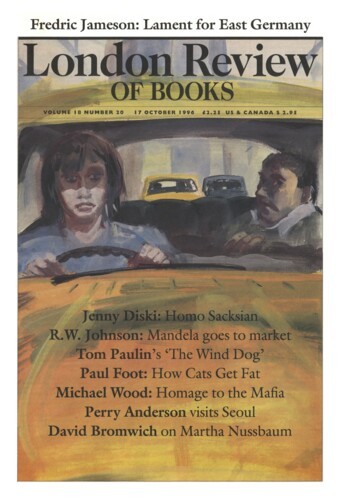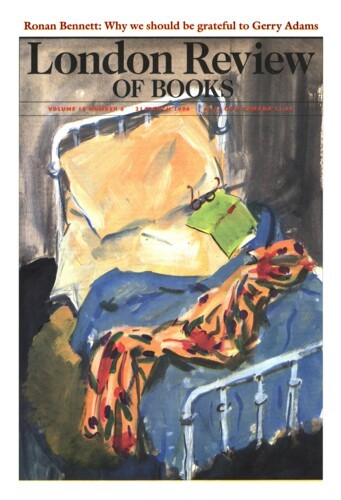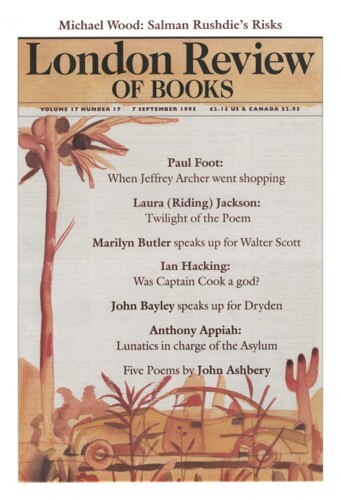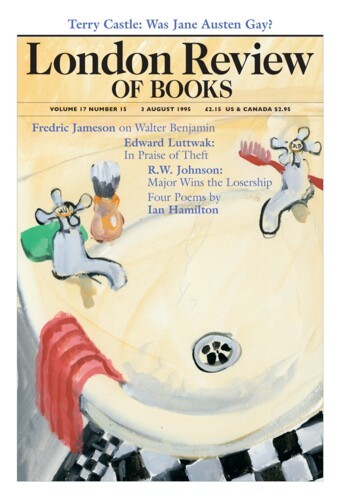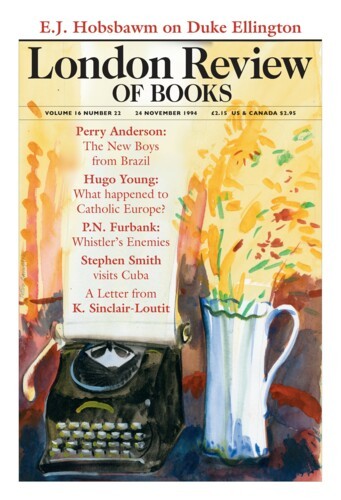Only the Drop
Gabriele Annan, 17 October 1996
A man in a Thurber cartoon asks a woman: ‘But Myra, what do you want to be enigmatic for?’ Or words to that effect. The question kept coming into my head as I read Beryl Bainbridge’s new novel, which is set on the Titanic during the four days before she sank, and narrated in the first person by a survivor whose first and only name is Morgan. The title, Every Man for Himself, suggests that human selfishness is going to be the theme. In fact, almost everyone or rather every man – behaves rather well, observing the women-and-children-first injunction when it comes to piling into lifeboats. ‘Every man for himself’ seems to refer rather to the inscrutability, the enigma of other people. There is a mystery about almost every passenger, and one of them, a middle-aged lawyer called Scurra, is opaque mystery all the way through, down to the scar on his lip – which some say he got in a duel, and others from the bite of a South African macaw. Morgan is only 22, and he develops a crush on Scurra, who is given to portentous and mostly cynical pronouncements. ‘Every man for himself’ is one; but the most portentous of all – because it opens and closes the book – is ‘Not the height, only the drop, is terrible.’ What can it mean?’
